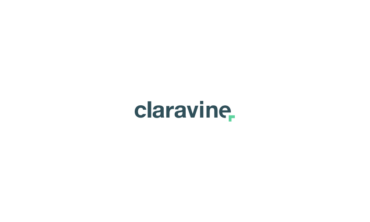A Season of [Analytics] Giving: Craig Scribner
Craig Scribner, web analytics expert, president and founder of Claravine shares the golden nuggets of analytics career development. More than a ‘how-to’ – Craig offers insight into the most impactful lessons from over a decade of experience as a practitioner, the colleagues and professional resources he’s most grateful for (plus a few you can use too), and how analytics professionals can reflect and give back to the community that’s nourished their practice.
The growing importance and value of data to organizations is no secret – the International Data Corporation reports an expected $274.3 billion in Big Data revenue by 2022. Over the last decade, a number of possible career paths in analytics have cropped up to meet the demands of data transformations. In fact, the Harvard Business Review quickly anointed data science as ‘The Sexiest Job of the 21st Century’, and analytics professionals have stepped up as key operators for facilitating data-driven decisions.
Since most lessons are observed best in hindsight, we interviewed Craig to get a practitioner’s perspective of his favorite analytics resources and lessons to help you kickstart and enrich your career development.
Developing a Career in Analytics
The most important thing for growth in my career was to get in a situation where I could get my hands dirty with a project. At a recent DAA conference, Tim Wilson said this very thing, ‘don’t learn a skill, get a project’. That is to say, a project will show you what you have to learn, help you learn those skills, and make them stick.
When I went to work at a startup where I was the only analytics person, I had to learn the business and decide what analytics should be there, how to communicate between the business and development side and implement the program. Often times you just have to get a project and move forward to deliver.
Learning from Mentors
One of my first mentors, Matthew Wright, helped me learn the inner workings of web analytics, which was a new field for me. He pushed me to take on increasingly complex issues of tech support. Working with him was critical for me as I developed my baseline of technical skills. I’m super grateful for that.
More than Technical Expertise
When I worked at LogoWorks another key mentor, Brian Bond, helped me realize that knowing your tech solutions isn’t enough. Before I started the job, the marketing side was brand new to me. Brian frequently challenged the mismatch between what I was delivering from a reporting system and what he needed to make marketing decisions. That really helped me sharpen my toolset as far as what KPIs were actionable and important for the team I was supporting. Finding mentors who can guide you and push back is essential.
My advice now to aspiring data analysts and consultants would be that you need to know your stuff, but vastly more important is understanding how your analysis is going to be used. Early on a lot of people have the tendency to think we should just give your employers whatever they ask for. Today, I’d instead push back with this sort of question: “if I delivered that report, what would you do with it? What are you trying to do with this data?” If I’d had that kind of foresight and courage from the start, I could have avoided a lot of counterproductive work which provided no business insights and saddled my employers’ web and mobile sites with non-traditional implementations that would be hard to maintain going forward.
The more understanding you can gain about the business requirements before jumping into the tech plan, the more effective your work will be as an analyst.
Navigating Transitions
The biggest change for me was moving from a single company, a single implementation, and a single group of business owners and development teams to the agency side. The five years I spent at VML under Eric Beane exposed me to a broader array of business questions and supporting technologies. I had to become more agile and use whatever technology the client company was using. I learned about a bunch of new analytics tools, and, conversely, learned how the tools I already knew could be applied differently for different client contexts. Every single project was different. Not everybody needs this sort of external motivation to develop their craft, but this transition was critical for me. I hadn’t realized how rusty my skills had gotten, and now I was having to develop new tracking strategies and implementations to illuminate different business scenarios on a pretty regular basis.
Finding the Best Resources
Back in the early days of my career one of the best resources was the Yahoo analytics forum. That group was foundational for me. All the right people were asking hard questions to move the industry forward. After that people started blogging. For example, Adam Greco burst on the scene a few years later, and all of a sudden there was a growing group of online resources.
Conferences
The most important resource to me has been conferences where I can learn and network. Ask your company to send you to industry conferences. If they say no, tell them you’re going to take vacation days and pay for it yourself. I actually did this once and my boss felt so sheepish that he got approval for the expense. But I met an individual this past fall who had done the same thing without the company bailout. And I think it’s absolutely worth the cost even if you’re the only person in your org who considers it a high priority. Here are a couple of conferences I can recommend.
- The Omniture Conference (now Adobe Summit). It’s a little broader in scope now that it includes more than the Omniture SiteCatalyst products.
- The DAA OneConference. Usually, the DAA puts on great regional conferences, but touching base with the wider network was so fun at this universal conference. The DAA invests a lot in professional development and regional networking for the analytics community.
Networking
Initially, I was not a great networker. I’d go to conferences and meet people and be friendly, but I didn’t worry about staying in touch with the people I met. That changed a lot when I started Tracking First (now Claravine) and I needed the feedback, advice, and generosity of other professionals in this field. When all I had were hand-sketched mock-ups, I relied heavily on the people I had met at conferences, as well as the authors of the blogs and forums I followed to give me their perspectives. The willingness of people in our field to listen, respond and assist has been amazing and overwhelming.
Giving Back
We’ve been talking about the generosity of people in the community, but there’s actually one individual whose kindness amazes and baffles me to this day. I’m talking about Jim Sterne.
Jim is a legend. He wrote the book I bought the week I started my first data job. I’d never met him, but on the advice of a friend I reached out to him to get his perspective about a business decision I was about to make. He took my call, listened to me, gave me advice that I didn’t like but absolutely needed, after which I was ready to say thank you and end the conversation. He didn’t let that happen. He instructed me to pull out my calendar and tell him when I’d check in with him again. That was over five years ago, and since that day we’ve never ended a call without scheduling our next one. I could fill a book with the wisdom and help he’s given me throughout my startup journey, but for now I’ll sum up with something he’s said to me dozens of times over the years: “Well, Craig, it sounds like you’ve managed that issue…so how else can I help?”
That kind of selfless generosity makes me think of how I might give back to others in our industry as well. If I ever think, ‘Oh, I’m too busy to have that conversation’, experiences like this make me pause and remind me of that key point in my business.
The Value of Being Present
One way I would encourage all analytics professionals to give back to this generous community is to be fully present. When you go to events, don’t be passive. Go and set aside your work for the two days you’re at the conference. Participate. Go to a class, engage, have a conversation with somebody at a lunch table. Contribute to the shared pool of knowledge. If everyone is on their phone or taking meetings with the teams they interact with at home, you do a disservice to yourself, but also the other attendees. Devote your time and knowledge to the community.
The last thought I have about giving back to this community is to be a listen-first networker. You’ll get so much more value out of interactions if you focus less on your name or brand. Learn other people’s stories. Go to conferences, not just to learn, but to meet people and be a resource to them as they may turn out to be for you.
About Craig Scribner

Craig Scribner is a web analytics expert with more than a decade of experience as an analytics practitioner. An early employee at Omniture (now Adobe), Craig has supported business groups and development teams on the business and agency side and now acts as president and founder of Claravine. Claravine is a leading data quality solution that allows analysts and digital marketers to lock down and automate tracking processes for campaigns and experiences, restoring trust in your data.


